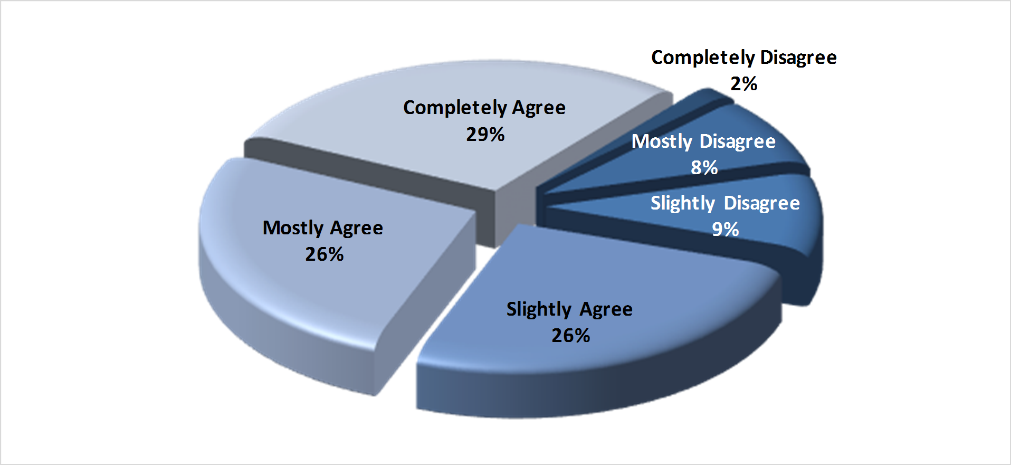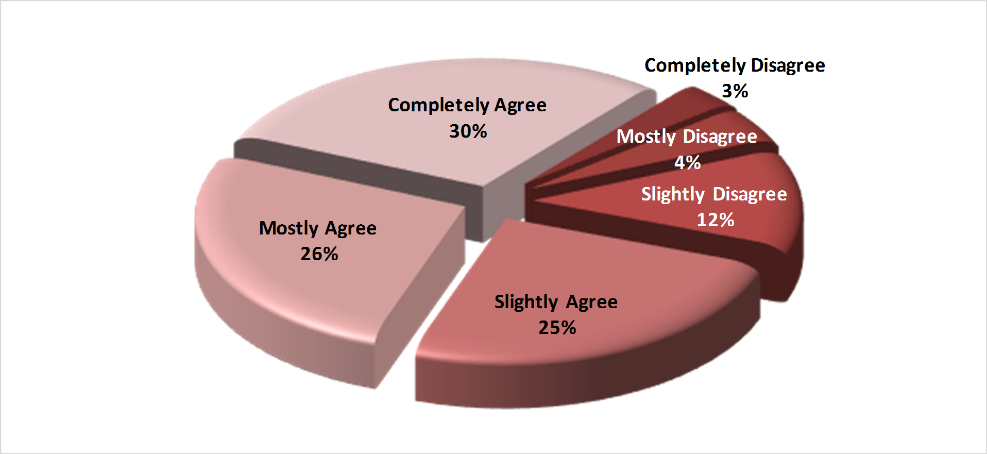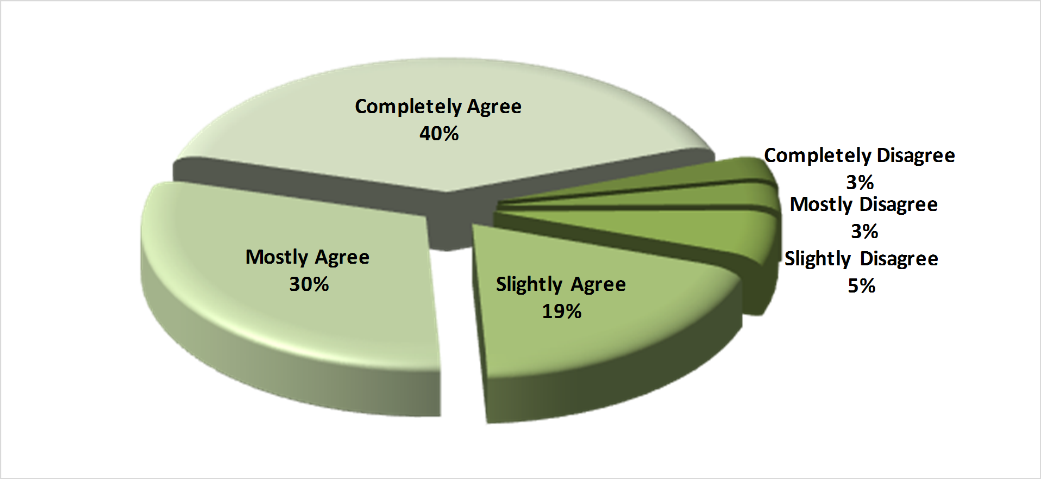Abstract
The unprecedented development of the means dedicated to access the information imposed a new type of training, oriented on
Keywords: Documentdocumentary researchinformation literacystudents’ feedbackPROFILES project
Introduction
Nowadays, the society is facing an abundance of information leading to the impossibility to a pertinent evaluation of the documentary content without a documentary training. This is defined by Jean-Pierre Derroey (1998) as “assimilation techniques for gathering integrated documentation into a series of steps of the research procedures.”
Social changes facing humanity led to the information opening of production markets, to the imposition of a professional information market (editorial databases, specialized documentation services) and distance learning.
The need for information and research is a real one and can (now more actual than ever due to the library resources present in a library) be diversified in a considerable way. Along with traditional documents, it is noticed a massive explosion of electronic resources (Sutter, 1998):
Scientific databases;
Electronic documents;
Specific Web sites for a specific domain etc.
All those generated the appearance of new information and communication services which in turn, have also generated products and services without a traditional equivalent. Also, new social practices have been developed based on new ways of using the information.
Problem Statement
The emergence of new information technologies has facilitated the direct vicinity of information to the user, no longer needing a whole system of mediation. To find, in a short time, particular useful information, this requires information literacy abilities, knowledge of the methods and techniques of retrieving information and specific documentation related to the new environment, availability of some skills for using the new technologies. Acquiring and mastering methods and techniques of information and documentation - in conjunction with skills which are specific to new technologies and working tools - represent the
Within scientific communications held by specialists in information and documentation (Lau, 2006), it was reported differentiated categorization of the Internet users regarding information skills and strategies. In this respect, there are three categories of Internet users: (a) experienced users; (b) users who browse randomly the Internet; (c) “illiterate” users (in information). The role of the information literacy is to prevent this last category to grow.
Concerning the scientific information, even there is a general consensus regarding the importance of Sciences in the economic development of our society - according to the
The reasons for not developing the young people’s interest for Science are complex. However, there are strong evidences indicating a connection between students’ attitudes towards Science and how Science is taught in schools. Thus, the students’ lower interest for learning Science can be explained by the curricula which is too hard for many of them to be followed, another one being the wrong way of teaching scientific topics and the low connection that teachers made between theory and practice. In addition, the lack of information concerning the aspects related to the knowledge and the important skills needed for choosing different occupations / professions related to Science area and the tasks that have to be achieved by the people involved in the scientific area, led to a continuous decrease of the number of students who intend to choose a future career in Science.
In this delicate context, Valahia University Targoviste was involved - as partner - in the FP7 European Research Project “
Research Questions
In the mentioned project, near other critical issues, two questions were linked to the importance of documentary research for students:
(a) Is it a solution - for the documentary research - to become a suitable way for students in order to help them to define their future career?
(b) In what measure the students actually use the documentary research to find out information concerning which are the suitable study programmes they have to follow and what are the needed competences for their chosen future career?
Purpose of the Study
The academic environment
The documentary training (as part of information literacy) was imposed in recent years into the attention of international organizations (UNESCO, 1991) that recommend the following:
The information operation is necessary and vital to all scientific fields of higher education;
Training must address all academic community members and should be defined according to their own needs;
Training must be integrated into all programs in the educational process;
Librarians have an important role in theoretical and practical training, regarding the use of information;
Training must integrate advances in information technology;
Theoretical and practical training should be encouraged by the intergovernmental and non-governmental organizations at national, regional or international levels.
In this sense, the training process must be provided at three levels:
orientation after the entry into college/university;
in terms of bibliographic and documentary research, specific techniques included attending special courses;
production and communication of specialized research knowledge.
The role of those recommendations is to provide a general guiding framework, in order to develop documentary training activities in the university. Moreover, many concerns about the need of new ways of controlling the information showed the importance of documentary training. The way each university develops and supports the development of a documentary training program, keeps the educational policy of each institution. The specificity of each university requires peculiarities in assimilation and development of documentary training activities.
In order to ensure a good level preparation of students, the universities started to implement different projects that involve activities not only in higher education, but also in pre-university system, such as: development of different CPD programmes for teachers, organizing workshops with the students from high school level, visits of the students in the university for increasing the knowledge related to the university study programmes and the competences achieved at the end of them, organizing common contests, scientific seminars or conferences for students from high school and university level etc. All those activities have the role of increasing the students’ interest for continuing their education to the university level and adopt a high-performance career.
In this context, the studies developed in the PROFILES project proved an important increasing of students’ motivation to learn Sciences when interactive teaching methods like
Research Methods
The research was a mixed-type: qualitative and quantitative, and its methods and tools were based on questionnaire surveys and semi-structured interviews. The target group consisted on students on 11th and 12th grades, from national colleges and high schools from Dambovita County involved in the implementation process of training modules produced in the frame of PROFILES project. The quantitative research enabled the measurement of students’ interest level concerning the information found out in the library and different sources from Internet about what study programmes they have to achieve in order to obtain the necessary competences, and the main tasks assigned to the occupations / professions they want to follow.
Findings
The purpose of the students’ gains study was to offer an overview about the impact of the PROFILES project intervention lead by the members of Valahia University Targoviste involved in PROFILES team to the level of students from pre-university system from Dambovita county. The sample consisted of 2822 students, coming from 128 different classes.
One of the aims of the study was to learn students in their final years of high school how to use the documentary research, so as to be able to express a preference for a particular profession. Thus, they will develop critical thinking skills, will form certain attitudes towards some aspects of the educational process and will realize the specific roles of citizens in a globalized society. Critical thinking contributes to career success, but also to a success for higher education.
The 21st century students requires information and technological literacy levels more complex, which go far beyond the basic knowledge which were sufficient in the past. At present, the student is facing a number of challenges that civic education has not found any relevant and applicable answers in the curricula. In addition, the workforce skills and demands have changed in the last twenty years. So, it is noticed a rapid increase in jobs involving analytic and interactive communication skills. Nowadays, the job market requires competencies such the ability to interact with people from many linguistic and cultural backgrounds
In this respect, from all the target group, 185 students involved in the 11th and 12th grades were invited to answer to several questions related to the actual possibilities to use documentary research as suitable way to help them to define their future career.
Figure

Looking to the obtained results, it can be seen that a big part of the students (81%) at least agreed that documentary research can be a suitable way to find out different information about the aspects involved in the professions that requiring a formal training. However, there are still 19% of students who didn’t appreciate that they need to use scientific literacy in order to be informed about the above-mentioned aspects.
Trying to be more specific, a next question was addressed to students concerning their interest to know which are the main tasks related to the occupations / professions that require a formal training. Students’ opinions are shown in Figure

A short look on Figure
When the students were asked if they are interested to make a documentary research to find out what qualifications are required in various occupations / professions, the rate of their answers (illustrated in Figure

Conclusion
There is no applicable universally single model of documentary training. The school / university library is the central element on which documentary training models are proposed, depending on its institution policy. However, as general rule, the documentary training must develop skills and strategies in order to analyse and solve specific information problems, to know information requirements, to build research strategies, to have a critical view on the virtual documentation offer, with the view to help users to become independent in terms of manipulating information.
In the respect of the promoted research, the obtained results helped us to see that a big part of the Romanian students appreciate that documentary research can be a very good way to learn more about the qualifications, to know the main tasks and important aspects involved in different occupations / professions. Probably the main role in this situation was granted to the setting up information and documentation centers in each school. However, there are still things to be done for increasing the students’ interest to be informed before to take a decision related to their future career and increasing the number of psychologic counsellors in each school, enabling them the possibility to exercise their role (together with the implication of the career guidance centres), not only at the university level but also at high-school level, in order to have high performance professionals in the near future.
Acknowledgments
This work was funded through the Seventh Framework Programme
References
- Derroey, J. P. (1998). Valeur et importance de la formation documentaire. In R. Laverdiere, La formation documentaire Actes du Colloque de l`ABCDEF - Universite Laval, Quebec, 1995. Montreal: AUPELF Publishing.
- http://ec.europa.eu/public_opinion/archives/eb/eb63/eb63_en.pdf.
- Lau, J. (2006). Guidelines on information literacy for Life Long Learning. International Federation of Library Associations and Institutions. Retrieved from http://www.ifla.org/files/assets/information-literacy/publications/ifla-guidelines-en.pdf, accessed 2016-12-15
- PROFILES Consortium. (2010). FP7 Negotiation Guidance Notes - Coordination and Support Actions. Annex I - Description of Work. Unpublished
- Sutter, E. (1998). Des bibliothèques traditionnelles aux bibliothèques virtuelles-l`evolution des bibliotheques dans l`enseignement secondaire et dans l`enseignement superieur. Les bibliotheques a l` ere electronique dans le monde de l`education, XXVI (1). Retrieved from http://www.acelf.ca/revue/XXVI-1/articles/01-sutter.html, accessed 2016-11-30.
- UNESCO. (1991). Programe general d’information et UNISIST. In *** (2005). Eurobarometer 63. Public Opinion in the European Union. Retrieved from
Copyright information

This work is licensed under a Creative Commons Attribution-NonCommercial-NoDerivatives 4.0 International License.
About this article
Publication Date
30 July 2017
Article Doi
eBook ISBN
978-1-80296-026-6
Publisher
Future Academy
Volume
27
Print ISBN (optional)
-
Edition Number
1st Edition
Pages
1-893
Subjects
Teacher training, teaching, teaching skills, teaching techniques,moral purpose of education, social purpose of education, counselling psychology
Cite this article as:
Erich, A. T., & Gorghiu, L. M. (2017). The Importance Of Documentary Research For Defining The Future Career. In A. Sandu, T. Ciulei, & A. Frunza (Eds.), Multidimensional Education and Professional Development: Ethical Values, vol 27. European Proceedings of Social and Behavioural Sciences (pp. 172-179). Future Academy. https://doi.org/10.15405/epsbs.2017.07.03.24

